
This conference will take place face-to-face (117 Avenue des Champs Elysées - 75008 PARIS) and remotely (the access link will be sent to subscribers by email the day before the event).
Conference URL: https://www.youtube.com/watch?v=rMPpbQ3CSMo
Systemic professions” in the company: towards “complex facilitation”
The business system engineer, or complex facilitator, is a polymorphic emerging profession. If it is indeed a profession, in the sense that it can be characterized by specific skills that distinguish it from other professions. However, it is a "meta" profession in the sense that any profession can be designed in a reduced dimension or an increased systemic dimension. In this sense, all trades can become denser and enriched "on site" by integrating systemic skills.
The identification of this profession is at the heart of the genesis of X-Sciences of Man and Society, of Welcome Complexity, and of Cognitive Companions. During the symposium, we will address 3 key questions through feedback from experienced practitioners:
- Are the trades of the systemic approach in business trades or not?
- What description and how to circumvent the profession of “enterprise systems engineer” or “complex facilitator”?
- What light does the emergence of the complex facilitator in business shed on the opposition between so-called “hard” sciences and so-called “soft” sciences?
The ambition of our symposium is to share with the participants on what we perceive of this emergence and on the feedback from experience.
Program
schedule | Speaker | Conference title |
6:00 p.m. - 6:05 p.m. | Jérôme Lazard, Welcome Complexity & founding partner of Ideoscripto, executive committee complex facilitator more than 15 years | Introduction |
6:05 p.m.- 6:15 p.m. | Aude Vinzerich, director of the strategy and innovation management division, EDF group | lived experience |
6:15-6 :30 p.m. | Lucie Cuisset, junior manager | "What brings or pushes the "youth systemic approaches Feedback and progress" |
6:30 p.m.- 6:45 p.m. | Michel Paillet , President of Welcome Complexity, President of X-Sciences de l'Homme et de la Société, Founding Partner of Cognitive Companions, Vice President of Efeso | Are professions in the systemic approach professions”? |
6:45 p.m. - 7:00 p.m. | Jean-Pierre Dandrieux , director of Welcome Complexity, founding partner of cognitive companions, Vice President Efeso, PLM expert | "The structural governance biases induced by mono-dimensional decision-making cost/benefit analyses illustration of reductionism" |
7:10 p.m. - 7:25 p.m. | Michel Paillet , President of Welcome Complexity, President of X-Sciences de l'Homme et de la Société, Founding Partner of Cognitive Companions, Vice President of Efeso | "What description and how to circumvent the profession of ' complex facilitator'" |
7:25 p.m. - 7:40 p.m. | Jérôme Lazard, Welcome Complexity & founding partner of Ideoscripto, executive committee complex facilitator more than 15 years | “How to arouse interest and sell a intervention in business? What are the requirements ? What is the part of art and science in complex facilitation? » |
7:40 p.m.- 7:55 p.m. | Dominique Genelot , Administrator of Welcome Complexity, author of "managing in and with complexity", former Vice President of the European association modeling complexity (AE- MCX), former CEO | Feedback management consultant systems engineer in a company |
7:55 p.m. - 8:10 p.m. | Philippe Fleurance , administrator of Welcome Complexity, former Vice President of the European Complexity Modeling (AE-MCX), Olympic performance optimization mission (2014) | "What light does the opposition between hard and soft science shed on this 'systemic' emergence? " |
8:10 p.m. - 8:25 p.m. | Q/A with the audience | |
8:25 p.m. - 8:30 p.m. | Jerome Lazard | Conclusion |
8:30 p.m. | COCKTAIL DINATORY "navigate in uncertainty" |
The speakers and their conference
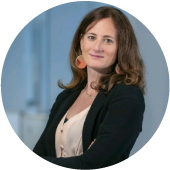
Aude VINZERICH
Conference in French ![]()
Feedback from lived experience
A director's first-hand experience of using a systems approach to elucidate a tricky executive issue
Director of the strategy and innovation management division, EDF group
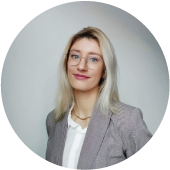
Lucie CUISSET
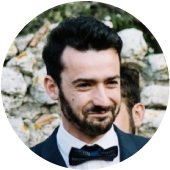
Nicolas MORIZOT
Conference in French ![]()
What brings or pushes the “youth” towards systemic approaches? - Feedback and progress
By describing their journey, their questions and their doubts throughout their training and the beginning of their professional life, Lucie and Nicolas will illustrate how the systemic approach and complex thinking seem to shed light on certain subjects. They will discuss their political and civic commitments as well as current issues that concern and/or motivate them. It is a question of presenting their journey to explain their functioning as human beings and that of others, to understand society and more generally the environment in which we evolve.
Lucie will focus on studies and tools for the professional world
Nicolas will focus on his first professional experiences
Lucie Cuisset , junior manager & Nicolas Morizot, consultant, manager, blockchain startup entrepreneur
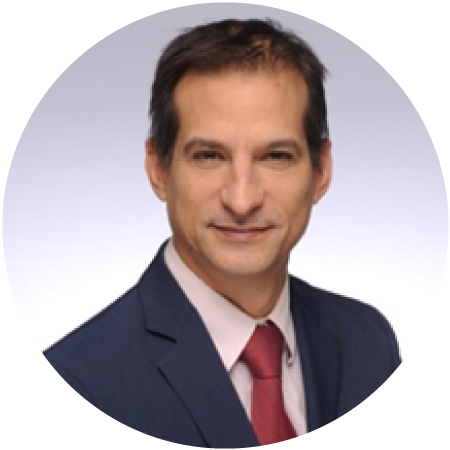
Michel PAILLET
Conference in French ![]()
First intervention
Are the professions of the systemic approach in business professions?
Our point of view on the 'professions' of the systemic approach in business is that it is not a question of new additional professions but rather of a regeneration of each profession, that is to say of a " increase" of a profession by a regenerated way of apprehending it.
Integrating a systemic approach into an existing profession is comparable to a form of complexification and densification. The same profession is then enriched by many interactions and connections with other professions which become an integral part of this profession, where it could be lived until then separated from the rest of the world.
From this point of view, the deployment of the systemic approach integrated into each business is undoubtedly the best way to dissolve the famous "silos" of the company.
During the intervention, we will also explain why we prefer the term complex facilitator to that of systemician.
Second operation
What description and how to outline the profession of 'complex facilitator'
Because the systemic approach to complex systems is at the heart of our methodologies, we have spent a lot of time continuously improving our recruitment of profiles capable of understanding their environment with this perspective.
It emerges that the 'complex facilitator' is, among other things, characterized by:
- A capacity for meta cognition and decentration
- A conjunction of subject and object without separation
- A clear awareness of the models that inhabit it and from which it perceives and designs.
Michel Paillet, President of Welcome Complexity, President of X-Sciences de l'Homme et de la Société, founding partner cognitive companions, Vice President Efeso
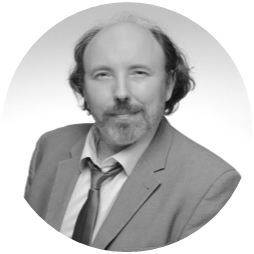
Jean-Pierre DANDRIEUX
Conference in French ![]()
The structural governance biases induced by mono-dimensional decision-making based on cost/benefit analyses: an illustration of reductionism
Companies were almost uniquely governed by immediate profit and ROI. In its economy part, the system focuses on gains that all aim to reduce the payroll or direct expenses (purchases). The work of the systems engineer consists of working with general management to regenerate the notion of investment and "scalability", by changing the rules to demonstrate that complexity cannot be managed by cost reductions, even when digitalizes it. Paradoxically, the field operators themselves, although in opposition to the announced cost reduction, become objective allies of the governance strategy by putting themselves in opposition to the change, therefore by blocking the possibility of addressing and making the growing complexity of industrial professions (engineering as well as production).
Jean-Pierre Dandrieux, director of Welcome Complexity, founding partner of cognitive companions, Vice President Efeso, PLM expert
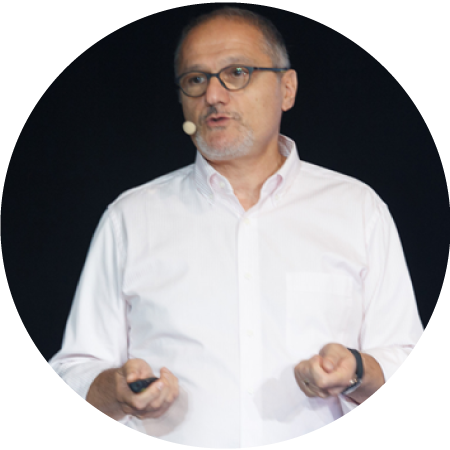
Jerome LAZARD
Moderator
Conference in French ![]()
How to arouse interest and sell a complex facilitation intervention in business? What are the required conditions ? What is the part of art and science in complex facilitation?
The art and science of complex facilitation applied to the facilitation of a managerial seminar.
The challenge is the generation of an ephemeral system created for the duration of the seminar. The characteristics of the ephemeral system are anticipated and prepared accordingly: objectives are defined, the deliverables characterized and the course of the seminar.
D-Day everyone is in place, everything is ready and it is from this moment that everything that has been thought out, defined, written can finally metamorphose according to the complexity generated by the presence of personalities with expectations different from those imagined beforehand. The art and science of complex facilitation can finally be practiced freely, with full awareness of what is happening minute by minute, moment by moment. It is a mixture of listening, intuition, questioning, feedback, reconfiguration along the way until, by carefully scrutinizing the gaze of the participants, we discern this magical and subtle glow, a sign that they understand and they want to go.
Jérôme Lazard, Welcome Complexity & founding partner of Ideoscripto, executive committee complex facilitator for more than 15 years
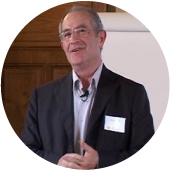
Dominique GENELOT
Conference in French ![]()
Feedback from a management consultant and systems engineer in a company
The conference will begin with a point of attention: the systemic is not a new fashion but a robust concept worked for more than 70 years now which calls for a radically different way of thinking about things.
To operate with this radically different way of thinking about things, it is necessary to acquire conceptual tools so as to be able to take things in their entirety and their diversity, taking into account the interactions, and asking the question of purpose.
To operate in this way implies the awakening of consciousness to a double ethical and epistemic responsibility. It awakens in particular the awareness of the way in which I am the toy without knowing it of the prior models that inhabit me and of which I was not aware. It is no longer possible to act without asking the question of the multidimensional consequences.
Dominique Genelot, Director of Welcome Complexity, author of "managing in and with complexity", former Vice President of the European Complexity Modeling Association (AE-MCX), former CEO
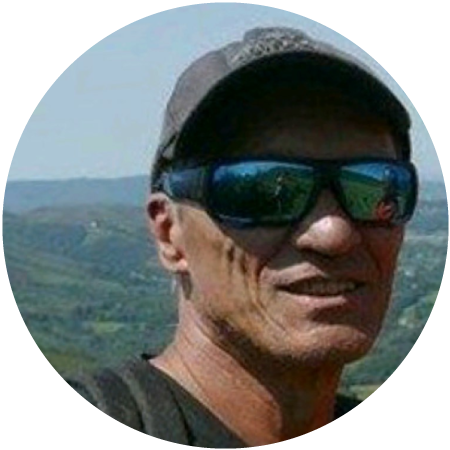
Philippe Fleurance
Conference in French ![]()
What light does the opposition between hard and soft science shed on this 'systemic' emergence?
This conference aims to close this colloquium by proposing an opening. It is a question of underlining how much the opposition and the binary categorizations between quantitative and qualitative are debatable.
A first perspective is to underline the degree of blindness and denial of the tension between objectivist data and subjectivist data which leads to reduction and simplification.
A second perspective is to recognize the tension between these poles by agreeing to discuss the “explanatory deficit”. This is the perspective opened up by thinking in complexity and systemics: that of “connecting” and learning to reason in terms of interdependence with actors, the environment, concepts, technical objects, etc.
The conference aims to illustrate that where it was a question of simplifying in order to design professional action, it is a question of understanding the complexity of situations and of working in the complex to find - along the way - balances, local solutions. , making decisions on time, safeguarding group cohesion and individual membership, … thus emphasizing transactions, compromises, negotiations between actors. We thus leave the usual reference to the paradigm of the individual competence of the "leader" - constitutive of the training of the manager who thinks of naturally providing leadership as a technical expert - to enter the more complex universe of the "leader of the team". 'orchestra'.
Philippe Fleurance, administrator of Welcome Complexity, former Vice President of the European Complexity Modeling Association (AE-MCX), Olympic performance optimization mission (2014)




